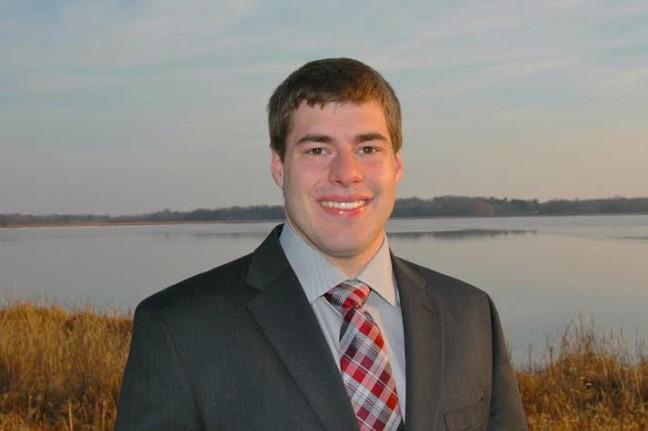Following a decision to apply for the Rhode’s Scholarship just four weeks prior to the deadline, Drew Birrenkott, a fifth-year University of Wisconsin senior triple majoring in biomedical engineering, biochemistry and political science, was named one of the 32 recipients of the scholarship.
How does it feel to be a recipient of the Rhodes scholarship?
It’s been really surreal. It’s taking a couple of days to sink in. I think the big thing is it’s really a testament to my two communities, McFarland and UW, and all of the great mentors and teachers I’ve had along the way that helped me pursue my passions and given me the skills to do that.
The Rhodes scholarship is exciting because it’s looking to the next step. It’s giving me the opportunity to study at Oxford and study the things I’m most passionate about and learn the skills I really need as I move forward.
How did you decide on your triple major and get through the heavy course load?
I came in wanting to do political science and biomedical engineering. They were two competing passions I had, so I was doing that right off the bat and what was interesting is I realized how they intertwined with each other.
I realized that particularly when I was working in Kenya and I thought I was going to be doing all this engineering with Engineers Without Borders. However, I realized it was a split where it was mostly working with community members and trying to do community organization and that drew on my political science experience … which was kind of a surprise. That confirmed my interest in both of those fields.
Biochemistry came later as I realized it would be excellent preparation for medical school. I had done a program in India and had a lot of biochemistry experience and realized I wanted to expand on that knowledge and decided to pursue it.
What areas of study do you want to focus on at Oxford?
I’m hoping to do a masters of philosophy in development studies that focuses on developing countries and looks at all the different things that factor into life care so economic situations, political and cultural situations, education and the health aspects.
What issues in international development and health do you want to focus on?
It comes down a lot to preventative medicine; medicine is kind of two different things. In the United States we focus on treating illnesses when they crop up but the other side of the coin is the preventative side, what can we do to prevent chronic illnesses before they even start? That’s something that I’ve seen is lacking not only in developing countries, but also in the United States and I think that’s really unfortunate because I think we can avoid a lot of the chronic diseases if we just try to find them before they even start.
What are you most looking forward to at Oxford?
Just the opportunity it gives me. I was at Oxford through a program in the biochemistry department in 2012 and I was really struck by the atmosphere there; it’s very intellectual. Everybody is always thinking about different things that may not necessarily relate to their field, and they’re sort of sharing ideas and that atmosphere where you really get to think about things you hold so close and look at them and examine them and take them to the next level.
Tell me about your experiences with Engineers without Borders.
Engineers Without Borders has really been a learning opportunity for me. It taught me the biggest challenges with development.
I spent a lot of time in Kenya on irrigation and realized a lot of the challenges people face in development projects. For example, something we realized was a major problem but the people in community didn’t realize the water was a problem. When we pumped the purified water they would say it doesn’t taste any different.
It was just realizing these projects are not going to be successful if the community doesn’t realize that something is an issue and is really passionate about fixing it.
How can current students make the most of their time at UW?
The big thing is to find your passion. Our campus is so big we have opportunities to just do just about everything you can think of. I would urge all of my fellow classmates, if they haven’t already, to find something they’re passionate about and dive in and never look back.
This article was edited for clarity.














